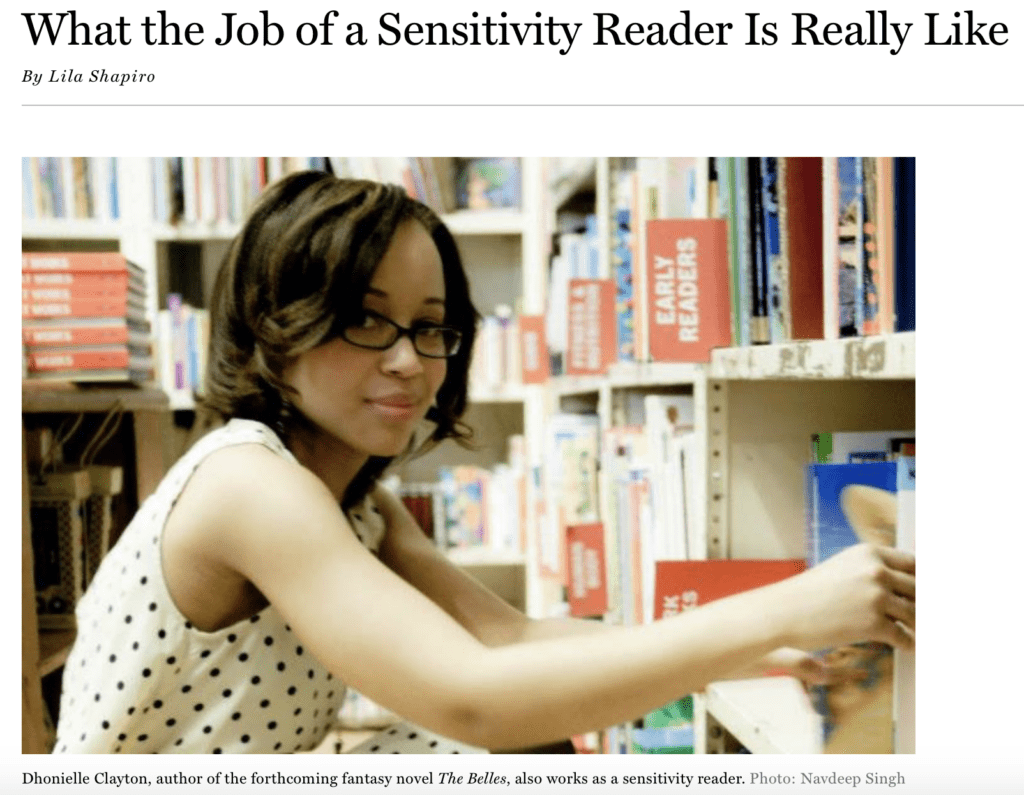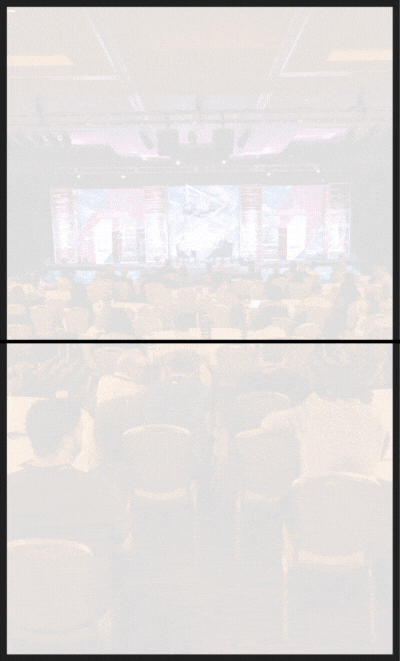If there’s one thing podcasters share, it’s their focus and desire for being storytellers. Sometimes, the stories told aren’t their own and may include perspectives they have not lived nor experienced. It becomes extremely tricky territory to do so without an expert hand, as doing research on one’s own can really only get you so far. One of the elegant solutions to the issue are sensitivity and cultural consultants.
![]()

Sensitivity readers and cultural consultants are people hired for their personal understanding and expertise in a culture or with an identity that a creator does not have, or perhaps, does not have as full an understanding of. They are reviewers, fact-checkers, and knowledge experts that can read, listen, and comment on a creator’s work. (There is little difference between a “sensitivity reader” and a “cultural consultant,” though one usual distinction is that the former is usually seen after a work has been drafted and the latter is often hired during the process of drafting.)
It’s important to say that what they do is not censorship. They aren’t here to tell you that you can’t write something, or that you’re racist/sexist/ableist/etc for what you’ve written. Their purpose is to help you write, present, and narrate a better, more accurate, kinder story. It’s exactly like hiring a marine biologist to check your facts in your underwater science-fiction story, or a legal expert to review your statements in your latest true crime analysis. You still have the option to not incorporate what they tell you, with the result being something more fanciful, less grounded in reality, and sometimes, harmful.
![]()

First and foremost, you should expect and be prepared to pay them and to credit their work in your resulting product. A large majority of the time, you’ve hired someone for their specific experience in a marginalized group to be sure you aren’t perpetuating harmful stereotypes or propaganda. This kind of work is necessarily tied to trauma and traumatically-informed experiences; a cultural consultant who reviews work on colonization of a certain people will have to think about and live in the moment with their experiences as a colonized person.
They are experts, and therefore you should pay them, just like you’d pay the marine biologist or legal expert. But in addition to that, you should pay them for the energy and effort they’re putting into this, because it’s not easy and sometimes, triggers responses like aftershock, PTSD, and anxiety. This is not to say that you should avoid hiring one for fear of hurting them; consultants are aware of what position they’re putting themselves in, and will take care of themselves accordingly.

When it comes to what to expect from them in terms of how they edit, you should expect corrections on mistakes that perpetuate harm. If you’ve written merpeople in your sci-fi story that are based in different cultures, you can expect a consultant to point out when you’ve integrated a stereotype that can clearly be identified and internalized. You can also expect suggestions and feedback on topics like language use, body language, historical relationships with different bodies like law enforcement or the church, and to some extent, taboo and sacred things.
When I say “suggestions and feedback,” think of this like a content editor. A consultant will highlight something in your work and explain why they think it’s a problem, provide the necessary context for you to understand, and oftentimes, provide alternatives. Many will also highlight things they think you shouldn’t change, because it’s important and they won’t want it to disappear in the midst of other changes.
![]()

You’ve hired an individual. They’re an individual with an intersection of experiences and identities that you haven’t lived, but they’re only one person. They can’t speak for all people in the community or culture you’re writing about, and they can’t always give you a definitive answer and they certainly won’t give you a seal of approval.
A disabled Black woman will live a different life than an abled Black woman, and if you’re talking about disabled Black women in your podcast, you should focus on finding a consultant who has that multiply marginalized experience. Be prepared to also consider hiring more than one person. You’re going to make mistakes. We all make mistakes when writing and talking outside our lived experiences.
You’re going to get uncomfortable with not being right or perfect. Embrace it. Lean into it. Learn from your mistakes. Pledge to always do better, to not take an automatic defensive stance when someone says you’ve written or said something harmful or stereotypical, and to remember that lesson in the future. It’s okay to be uncomfortable; it’s the way we can grow as creators and as people.
![]()

“But what can a consultant do for me?” you might ask. Here’s a list of some of the things cultural consultants can help you with at different stages in both nonfiction and fiction podcasting.
Nonfiction
A lot of the work that sensitivity readers and cultural consultants are best at with non-fiction work involves being hired during the research and design process, not after it’s been created. Getting them in on the ground floor is crucial.
- Consultants can provide insight into your analysis that you may not have considered, if you don’t have experience living it. A lot of investigative journalism podcasts include analysis, narration, and descriptions from hosts and journalists; getting someone to double-check your thinking is a great way to support research and open new avenues for analysis.
- Consultants can indicate when a harmful stereotype, trope, or statement should be firmly countered. Sometimes, we get uncomfortable calling people out in interviews or fieldwork. A consultant can highlight when we’ve let something slide due to our own discomfort that we should not have, and solutions on how to address it.
- Consultants can provide feedback on narration about and descriptions of interviewees or topic subjects, locations associated with and populated by marginalized folks, and other cultural touchstones. We love to describe the places we’re in and the people we meet, and provide soundscapes that have the feeling of the area. What we don’t realize is when those descriptions and sounds foster harmful stereotypes or microaggressions. Don’t alienate the people you’re trying to help or the voices you’re trying to boost.
![]()
Fiction
Sensitivity readers and cultural consultants are most commonly talked about in fiction literature, especially fantasy and science-fiction literature that often draw heavily on real life experiences and surroundings and then distort, modify, or amplify parts of them. Consultants are as crucial in fiction podcasting as they are in written literature, and can be brought in during the writing stage as a consultant before you put anything to paper, or afterwards. (Again, I’d say that it’s important to hire them before you commit to a particular design, if possible).
- Consultants can provide insight into character attitudes, language use, cultural references, relationships with other people within-community and outside-community, and a whole host of other topics that you may not expect to impact what you’ve written. This is especially true for multiply marginalized people, whose life experiences are markedly different from someone who only shares one of those identities.
- Consultants can also provide feedback on how you describe characters (such as, avoiding food metaphors to describe people of color) or how you present problems related to their marginalization.
- Consultants can help navigate microaggressions and harmful cultural appropriation (such as the telling of taboo stories from various Native American tribes).
![]()

Sensitivity readers and cultural consultants are important people to have on your team. At the same time, we need to take a step back from our podcast and look at the ecosystem and society we’re working, creating, and living in. Readers and consultants are a band-aid for a larger issue: bias, prejudice, and hatred that runs rampant in our media, in our politics, in our upbringing, even in places we don’t expect. Even in parts of ourselves that we didn’t expect. Dhonielle Clayton writes about this in the publishing industry; specifically “the systemic erasure and blockage of people of color.”
Before you do anything else — before you hire a consultant, before you put pen to paper or take a recorder on a walk — ask yourself if you’re the right person to tell this story. Sometimes, we jump in headfirst with the best of intentions, and end up telling a story that isn’t ours to tell and hurting people. Don’t be demoralized reading this.
Move forward with your eyes open not just to the world around you, but your own actions and decisions.
And if you think, “Hey, maybe an expert opinion on this matter might help me out,” go out and hire a cultural consultant and talk to them. They’re storytellers, too, and you never know what the next story might bring.




Join the Movement